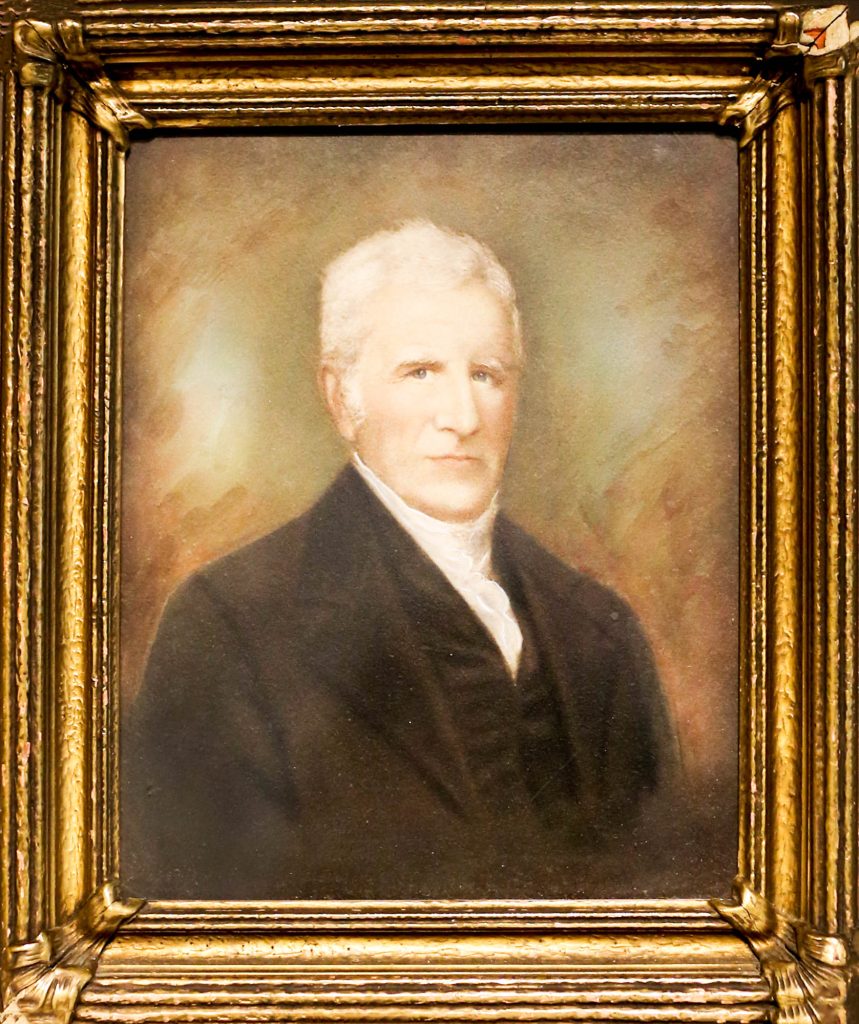Jacob Mordecai was a child of unlikely circumstances. The early life of his father, Moses Mordecai, poses a lot of questions. Originally from Bonn, he left for England—although it is not known when precisely—and first arrived in America as an indentured servant around 1758, already aged of fifty-one. He seems to have worked off his indenture within three years, at which point he had returned to England and married Elizabeth Whitlock, thirty-eight years his junior. She converted to Judaism, and the couple were living in Philadelphia when she, aged seventeen, she gave birth to Jacob, in 1746. Three more children would follow.
Despite his inauspicious beginnings in America, Moses seems to have done well for himself as a merchant. The family home was in Elfreth’s Alley, and Moses was one of the signatories of the Non-Importation Resolutions of 1765, in which American traders refused to import goods until the repeal of the Stamp Act. Moses died in 1781 and Elizabeth married Jacob I. Cohen, although not without some controversy: As a kohen he was, according to Jewish law, precluded from marrying a convert.
Young Jacob threw himself into the Patriot cause. At the age of thirteen, he volunteered as rifleman for the Continental Congress when it was resident in Philadelphia. And during the war he served as a clerk to David Franks, quartermaster to George Washington.
After the war, he moved to New York where he married Judith Myers, daughter of famed New York silversmith Myer Myers and his first wife, Elkaleh Myers Myers. Their first child, Moses, was born there in 1785, followed soon after by Samuel. The family then resettled in Virginia, where Judith gave birth to three more children, and by 1794 they had moved again, now to Warrenton, North Carolina, where Mordecai worked as a tobacco merchant. In 1796 Judith died giving birth to their seventh child. Two years later Mordecai married Judith’s half-sister, Rebecca Mears Mordecai, daughter of Myer and Joyce Mears Myers. Seven more children followed, including Alfred.
Meanwhile, even as Mordecai reputation in Warrenton for being smart and civically engaged, his tobacco business wasn’t thriving. In 1808, at the behest of town leaders, he opened the Warrenton Female Seminary, which came to be known as Mordicai’s Female Academy. One of the innovations upon which the school’s reputation grew was its sensitivity to the practices and beliefs of different faiths: in instilled tolerance of the observances of different Christian denominations and Judaism and culled moral lessons from each. Initially he and Rebecca did all the teaching, but soon they were able to hire teachers, and by 1814 the school had become so popular that Mordecai had to limit enrollment to 110 students.
In 1819 decided to sell his school, whose reputation was by then assured. He moved his family to Richmond, bought a farm outside the city, and was an active member in Congregation Beth Shalome.
